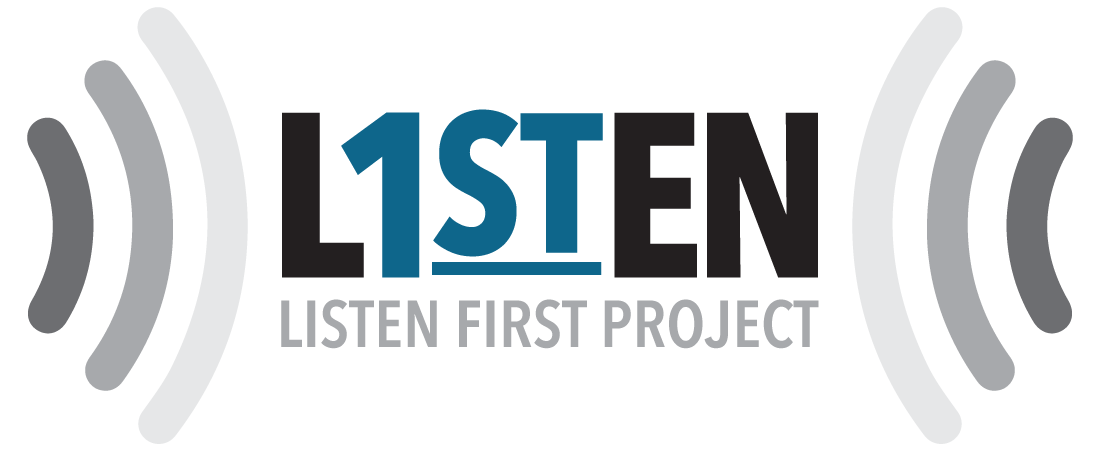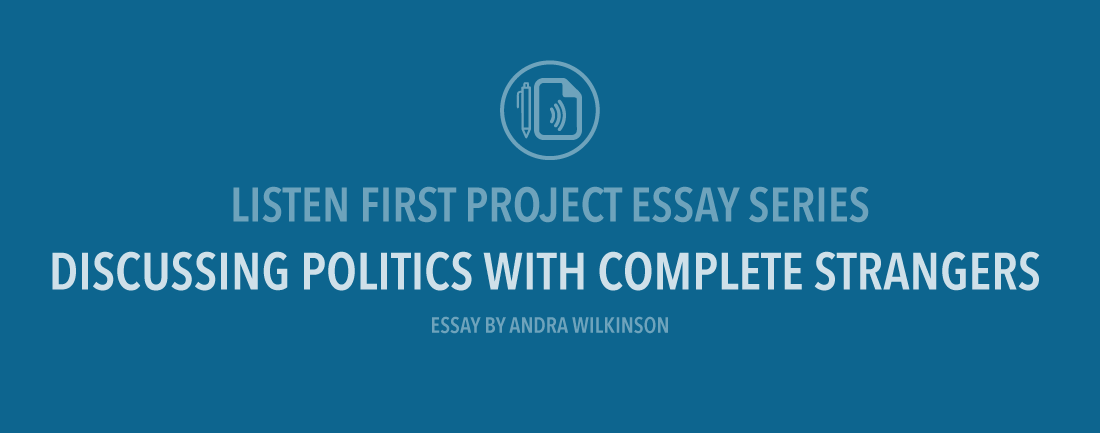Discussing Politics with Complete Strangers
In the aftermath of this election, it’s been heart-warming to see the calls from voices I admire for Americans to pull out the ear buds, get off Facebook, and, ya know, talk to each other again. What must follow is guidance as to how. How to approach someone whose views you know are not only different from your own but views you may actually feel threatened by, and ask questions with the intent to understand and not judge, and then respond. Let me clear here, I think views that are racist, sexist, homophobic, and/or xenophobic are unacceptable and I think spewing hatred at people who espouse such views will change things not one bit. Which is why, when a woman in a locker room (ironic location, no?) looked right at me and advocated extreme violence against fellow Americans, causing other women and myself to leave in discomfort, I paused, took a deep breath, went back in, and sat down next to her.
Let me be clear also that I’m not for asking with doe eyes “Tell me more about your views that harm my sense of personal safety” and giving the speaker carte blanche to receive passive—though unintentional—endorsement from my attentiveness. While this may calm someone down as they will feel heard, it’s not discourse, which is what I think packs the punch (pardon the somewhat violent metaphor to drive the point, ‘melts the butter’ just did not work as well). This, after all, is called Listen First, not Listen Only.
Sitting next to her, I said. “Hey, I heard you calling for violence, and I get it. Violence can sound nice when you’re scared and angry. But I think the way forward is respect and compassion.” She responded with more violent rhetoric implying the people who have views she disagrees with are not people. This is where I think we get into real trouble. I challenged her pointing out that the folks she disagrees with are also likely feeling scared and angry. This, gave her pause. Perhaps because it humanized her opposition. She interjected with slightly less violent statements, I tried to empathize with the emotion undergirding it, she felt heard, the wall came down slightly, and I was able to provide gentle redirection. This cycle happened a few more times until she and I were both nearly in tears from the vulnerability and discomfort we felt and fundamentally agreed on this: We don’t know the way forward from thinking half of Americans are bad people.
As our conversation closed, she told me who she voted for and I told her who I voted for and we both leaned forward, asking the other to explain more. No digging in the heels, avoiding each other when we realized we disagreed, or looking to our phones for validation. At the end, she offered me some apples from her bag. Hoping there was no Snow White master plan in her head, I took them.
Upon walking out of the locker room, I saw one of the women who had rushed out upon hearing the violent rhetoric. I asked her if she was OK and she was quick to attack the woman, “Oh that woman’s bat [poo] crazy, I try and never interact with her.” I calmly said, “Well, I think she’s just feeling lots of complex emotions like the rest of us are.” The woman shook her head, nope. So, pulling an apple out of my bag, I told the woman, “At the very least, she showed kindness.” The woman thoughtfully paused, and I thought I had just acquired the best ‘I’m such a good citizen’ story when she triumphantly resurfaced my Snow White fears and said “Make sure they’re not poisoned.” Sigh. At least she left some room for them to not be poisoned.
Discussing politics with complete strangers as often as possible is messy, challenging, and doesn’t always end well. But, after trying to do it these past few weeks, I feel inspired at a time when I think many are not.
For more inspiration on the power of emotionally connecting with folks you disagree with, watch Sally Kohn’s TED talk.
Andra Wilkinson, PhD
January 2017

